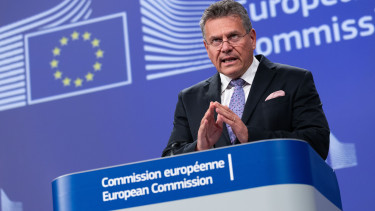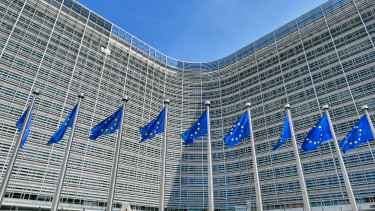EU funds bargain begins, Hungary starts at minus EUR 6.5 billion

The 51-page paper called "Negotiating Box with figures" was officially made public last Monday, but it had been leaked before that. The document will be the basis for discussion at the working dinner of heads of government and state on Thursday evening. It is the first but certainly not the last act in the political/financial haggling over the next EU budget.
The Finnish paper says the maximum figure for total expenditure for the EU27 for the period 2021-2027 will be EUR 1,087,327 in appropriations for commitments, representing 1.07% of EU’s GNI, and EUR 1,080,000 in appropriation for payments, representing 1.06% of EU GNI.
The former is EUR 50 billion smaller than the European Commission's original proposal that was already disapproved by various member states, including Hungary.
The package tabled by Brussels would have lowered Cohesion Fund grants for Hungary by 24% over the 2014-2020 period. Under the EC proposal, Hungary's cohesion envelop would be EUR 17.9 billion at 2018 prices, down EUR 5.7 bn over the current seven-year programming period.
The Finnish proposal, which draw the ire of the 16-strong Friends of Cohesion group, would flatten the envelop for Hungary even further by EUR 700 mn (to EUR 17.2 bn).
this would cut cohesion funds for hungary by nearly 6.5 billion euros compared to the current budget.
The main reason behind this is that instead of 24% recommended by the Commission the Finnish presidency proposes 27% as the maximum reduction in EU funds. In other words, the appropriations for committments could not go below 73% of the previous fiscal cycle's appropriations for any of the member states. The adjustment of the safety net would three member states of further funds: Bulgaria, Hungary and Romania (Romania and Bulgaria would thus receive up to 7% more funding than currently instead of 8%).
A favourable change was also proposed, though. The Finnish presidency's benchmark for the calculation of appropriations for member states was GDP between 2015 and 2017 instead of 2014 and 2016. Hungary would benefit from this thanks to its higher growth figures, but it seems that when making this adjustment the Finnish presidency did not take into consideration the European Commission's 2019 Autumn Forecasts. Calculating with higher GDP growth Hungary's Cohesion Funds envelop would also be fatter, regardless of the fact that they trimmed the cap on Cohesion Fund grants by about 40% (to 1.5% of GNI).
Another consequence of the general expenditure cut is that subsidies for several Hungarian regions that are among the most underdeveloped regions in the EU could decline futher after 2021. Meanwhile, the Finnish presidency claims its proposals would benefit the poorest regions at the expense of the wealthier, so-called transition regions (whose GDP per capita falls between 75 and 90% of the EU average).
The picture on the agricultural front, however, has brightened somewhat for Hungary, as the Finnish proposal would give back EUR 10 bn to rural development, the second pillar of Common Agricultural Policy (CAP). The CAP budget would still receive less than in 2014-2020, as the Commission applied a 20% budget cut for all member states.
Hungary's share of the EUR 10 bn is about EUR 300 million. The presidency does not propose to lower appropriations in the first pillar or direct payments, where the Commission's proposal will result in a 15% decline.
It is also interesting that the Finnish proposal contains practically nothing about the conditionality linked to general deficiencies as regards the rule of law in member states. Whereas the presidency has been stressing this conditionality as one of its key priorities, Bruxinfo has learned that the matter has never been discussed in the relevant council working group. Over the last six months, practically no progress has been made in this issue, and the legislative process gained no traction even though it was put forward in parallel with the 2021-2027 Multiannual Financial Framework (MFF).
Cover photo by Getty Images















